Israel-Hamas War: What happened on day 103?
Hostage's mother accuses IDF of poisoning son to death inside tunnel • Medicine en route to Gaza hostages, undergoing IDF inspection at crossing
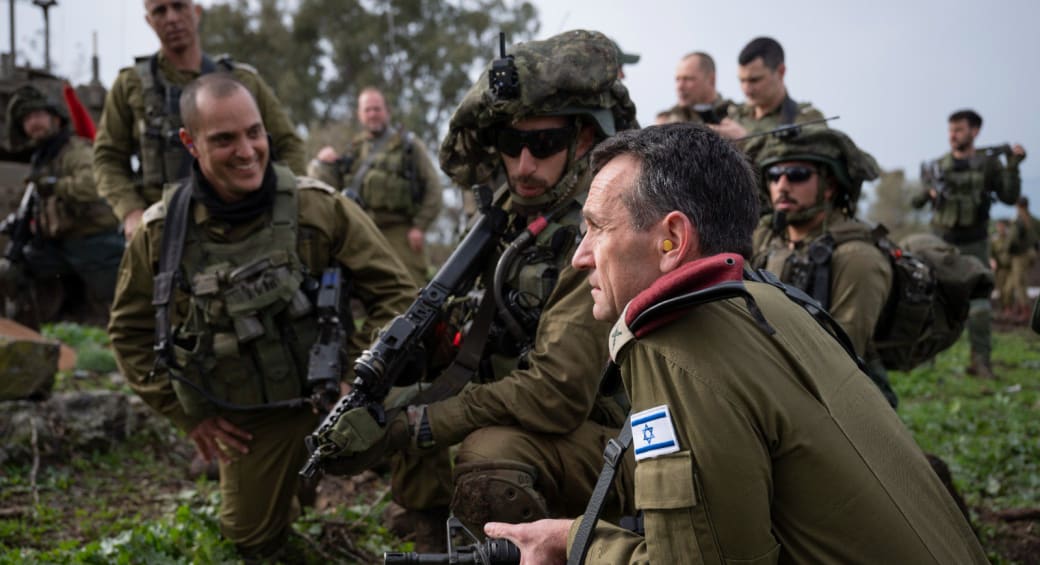

Netanyahu delayed new Gaza hostage deal, left war cabinet in the dark - report
According to reports, the ministers involved in the discussions found out about this later, and some of them even confronted the government to express their anger.

Prime Minister Benjamin Netanyahu unilaterally delayed and backtracked on agreed-upon outlines for the release of hostages without consulting the cabinet, according to Israeli media sources on Wednesday.
In recent days, the political leadership in Israel discussed potential conditions for a new and proactive negotiation that could eventually lead to a hostage deal. The negotiations were expected to be pushed forward by a mediator.
However, Prime Minister Binyamin Netanyahu delayed the talks and increased the demands that had been agreed upon, according to reports.
Discussions over the conditions were held with political echelon leaders, namely Defense Minister Yoav Gallant and Ministers Benny Gantz and Gadi Eisenkot. These discussions eventually brought about agreed-upon conditions that would guide the advancement of negotiations, which would later lead to a deal with Hamas when the political leadership had already reached conclusions about what Israel could give as part of that deal.
Without any warning
However, a few days after the conclusion of discussions in the war cabinet, and after the conditions that would guide Israel in the current course of action were agreed upon, Netanyahu delayed the outline and increased the demands without coordinating with the ministers of the war cabinet.
According to reports, the ministers involved in the discussions found out about this later, and some of them even confronted the prime minister to express their anger.
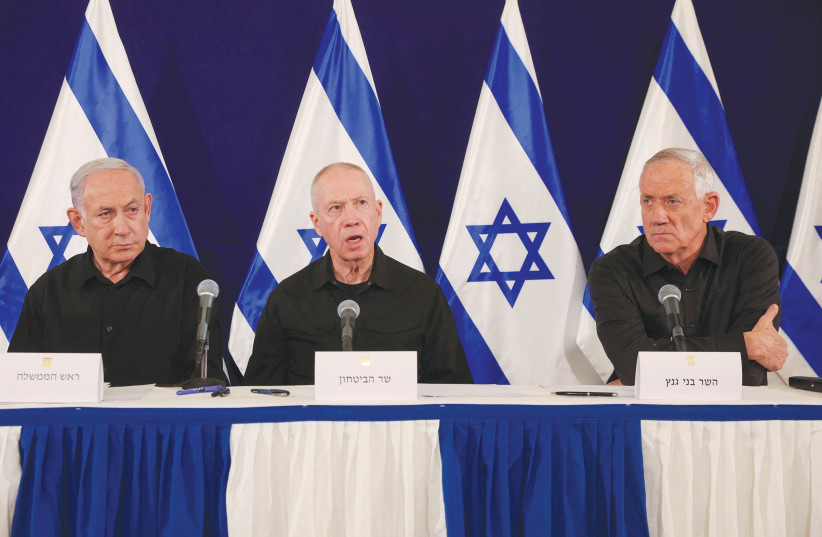
Sources within the government said that Netanyahu is "missing out on an opportunity to advance a hostage release deal."
On the other hand, political sources said that "they are still working on an Israeli outline; It has not been stopped."
Go to the full article >>Qatari plane lands in Egypt with medication to be brought to Gaza
The Prime Minister's Office announced that the operation was launched "under the direction of Netanyahu and following the agreement of the head of the Mossad Barnea with Qatar."
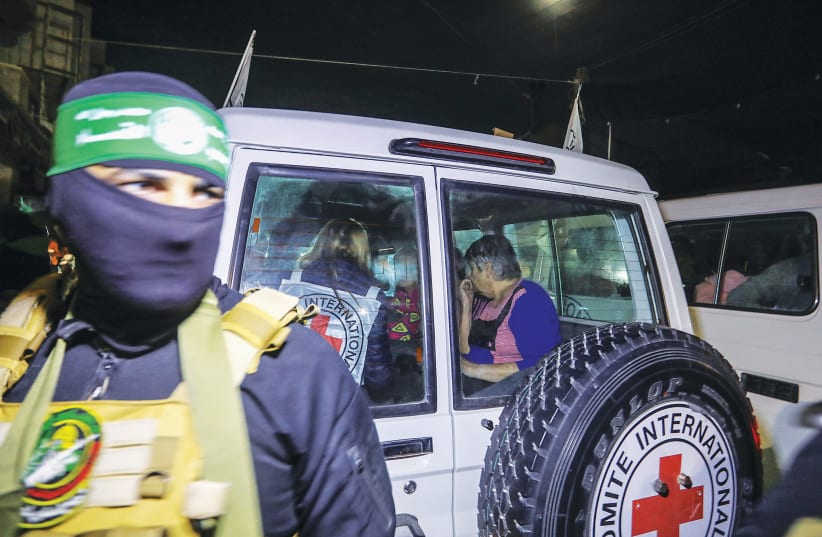
The first shipment of medication from Qatar landed at the Al Arish airport in Egypt on Wednesday morning, according to Israeli media, citing Qatari news.
The medication was bought from France and will reportedly be sent to Egypt in two shipments to Egypt before being transferred to Gaza.
The agreement states that proof must be provided to Israel that the medication did reach the hostages.
Comments by a senior Hamas official
A senior Hamas official, Musa Abu Marzouk, made a comment about the agreement on his X account, saying, "The Red Cross submitted a request to provide medicine to Hamas prisoners of war, and there were 140 types of such medicine, so we set several conditions."
Marzouk then details the conditions. The conditions include that in exchange for each package of medicine, a thousand packages must be provided for Gazans; The medicine must be provided by a trusted country; The Red Cross will distribute the medicines in four hospitals covering all areas in the Gaza Strip, including medicine for the hostages; Food and aid for the Gaza Strip must be increased; and the Israeli army must be prevented from inspecting the drug shipments.
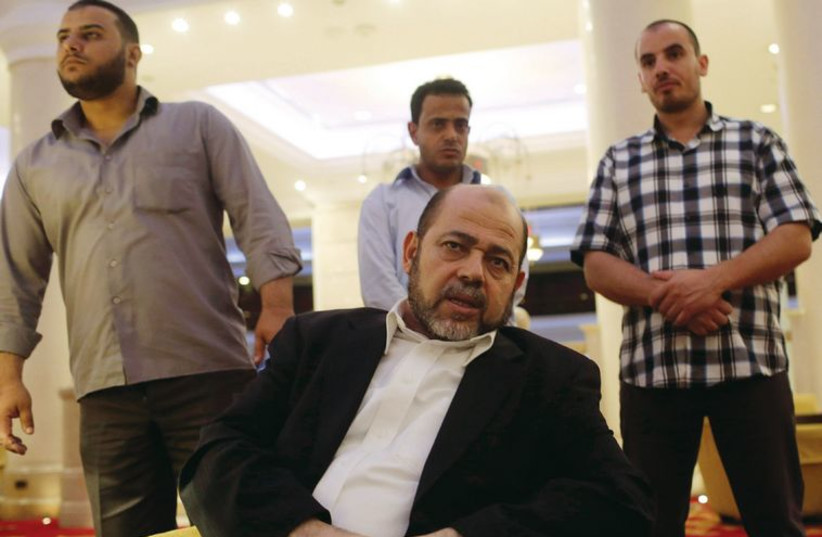
Initially, France offered to supply the medication to the hostages, but Hamas refused because of France's position of "supporting the Israeli occupation," according to a Kan News report.
تقدّم الصليب الأحمر بطلب تقديم الدواء لأسرى الحرب عند حماس، وكانت 140 صنفًا، فوضعنا عدّة شروط:
— د. موسى أبو مرزوق (@drmousamarzouq) January 17, 2024
- مقابل كل علبة دواء، ألف لأبناء شعبنا.
- توفير الدواء عبر دولة نثق فيها.
- يضع الصليب الأحمر الدواء في أربع مستشفيات تغطي جميع مناطق قطاع غزة، -بما فيها أدوية الأسرى-.
- إدخال مزيد من…
Hamas requested Qatar to supply the drugs, and Qatar agreed, according to Marbouk, Kan News reported. Marzouk added that Hamas must be the one to determine the quantities, the middleman, the distribution mechanism, and the supply of medicines to the north of the Gaza Strip.
Israel and the US in response to the deal
Commending on the deal, an Israeli official stated, "We hope that the drug deal will finally materialize and they will reach their destination. Qatar will guarantee the delivery of the drugs to the abductees. The success of the deal will create a good dynamic for achieving a deal to release the abductees." The Israeli official did not reveal how they would know the drugs had reached the abductees.
The Prime Minister's Office announced that the operation was launched "under the direction of Netanyahu and following the agreement of the head of the Mossad Barnea with Qatar."
The office also highlighted that the list of medication was written up in Israel and in accordance with the medical needs of the abductees. In addition to the medication, humanitarian aid is expected to be sent to Gazans.
The US envoy for humanitarian affairs, David Satterfield, expressed concern and frustration for the humanitarian situation in Gaza, asking the Israeli government to increase its aid, emphasizing a humanitarian crisis in the Gaza Strip, the Kan News report stated.
US Secretary of State Antony Blinken also requested to increase humanitarian aid to Gaza, claiming that this would permit the US to continue protecting and assisting Israel. The US aims to increase the number of trucks entering Gaza to 300 per day.
Go to the full article >>Jordan says its Gaza hospital damaged by Israeli shelling

The Jordanian army said on Wednesday its military field hospital in the city of Khan Younis in Gaza was badly damaged as a result of Israeli shelling in the vicinity.
In a statement, the army said it held Israel responsible for a "flagrant breach of international law."
Go to the full article >>Israeli Air Force attacks southern Lebanon - report

The Israeli Air Force attacked southern Lebanon several times on Wednesday, according to Israeli media reports.
Go to the full article >>Sullivan: Israel-Saudi deal, Palestinian state achievable in near term
His words were part of a series of statements the Biden administration has made about its intention to pursue a peace process once a ceasefire is in place.
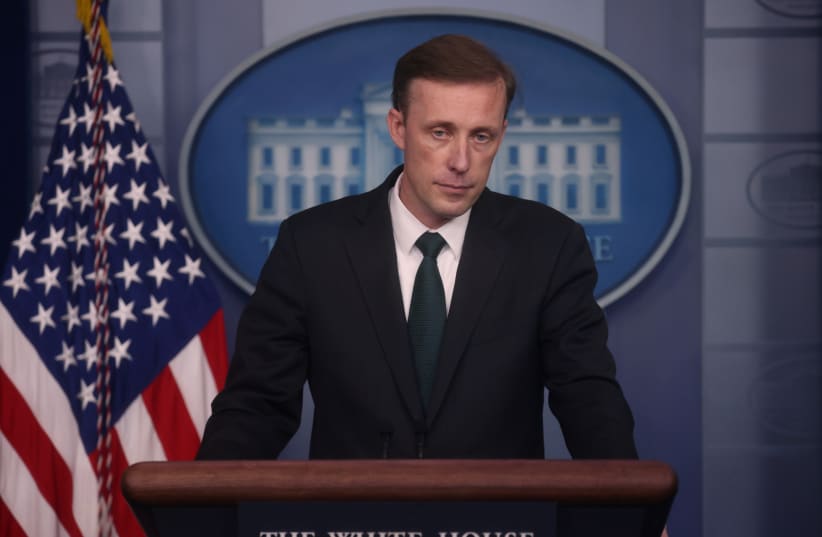
A normalization deal between Israel and Saudi Arabia as well as Palestinian statehood could be achievable in the near term, US National Security Advisor Jake Sullivan told the World Economic Forum in Davos, Switzerland.
“We are actively pursuing a path to normalization and integration with our regional partners,” he told the Forum on Tuesday.
“The Biden administration sees a future where Israelis and Arabs can live in peace, Palestinians have a state of their own and Israel’s security is assured,” Sullivan said.
“It is not impractical, it can be done, the pieces are there to be put together to achieve this outcome and not years down the road but in the nearer term,” Sullivan said.
His words were part of a series of statements the Biden administration has made about its intention to pursue a peace process once a permanent ceasefire to the Gaza war is in place.
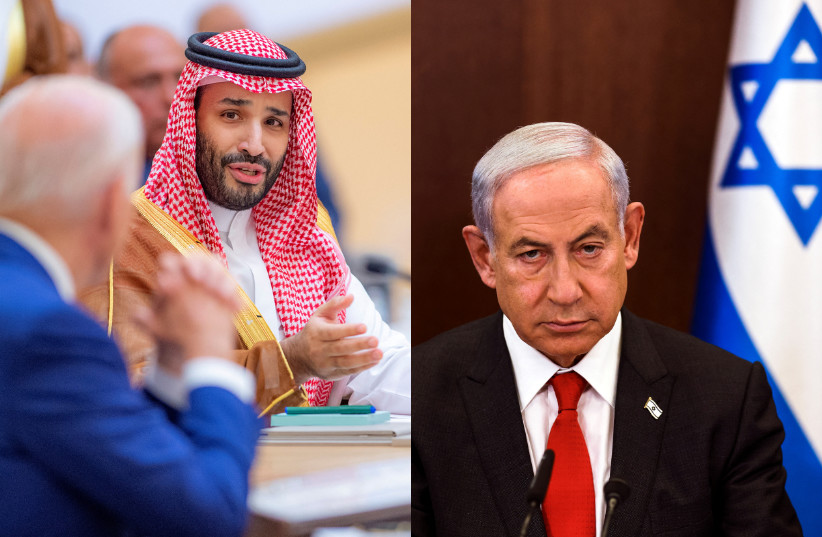 (L-R) US President Joe Biden, Saudi Crown Prince Mohammed Bin Salman and Prime Minister Benjamin Netanyahu (credit: VIA REUTERS)
(L-R) US President Joe Biden, Saudi Crown Prince Mohammed Bin Salman and Prime Minister Benjamin Netanyahu (credit: VIA REUTERS)Did October 7 destroy any chance at normalization with Saudi?
It has largely been presumed that the Hamas attack on October 7, destroyed any option for US President Joe Biden to continue work on regional peace agreements that include Israel, in light of his 2024 run to secure a second term.
Sullivan said that before the October 7 attack, the US was focused on diplomatic efforts that would lead to a two-state resolution to the conflict, particularly through its push for a deal with Saudi Arabia that would have included normalized ties with Israel.
“A central diplomatic initiative of the Biden administration was to try to generate normalization and as a critical element of a normalization package generate both tangible benefits for the Palestinian people and a political horizon for two states,” Sullivan explained.
“It was our judgment that was to be that was going to be the most viable pathway to make progress on what had been an intractable problem. That going through another round of direct negations was not going to do it, so coming in this indirect way was most likely to generate this result.
“Going through a direct round of negotiations was not going to do it,” Sullivan explained. He described how earlier last year, in 2023 he went to Ramallah and sat “with President Abbas and talked through this play, long before October 7 took place.”
“The strategy post-October 7 does not deviate very much from that, we still want to see normalization tied to a political horizon for the Palestinian people,” he said.
“The current Israeli government has expressed quite strong views publicly about the Palestinian question. There are elements and voices in that government that, the US government has come out quite strongly and criticized for certain statements and stances they have taken,” Sullivan explained.
“Ultimately the Israeli government will have to make its choice about how best to guarantee and ensure the security of the state of Israel. It is President Biden’s firm conviction that the best way to do that is two states with an Israeli security guarantee,” he said.
When Biden and Prime Minister Benjamin Netanyahu spoke in the weeks and months leading up to October 7, the Palestinian question was a key topic of discussion, Sullivan explained.
Saudi Arabian Foreign Minister Foreign Minister Faisal bin Farhan told the Davos forum that normalization with Israel was possible, but only in conjunction with Palestinian statehood.
“We agree that regional peace includes peace for Israel but that can only happen through peace for Palestinians through a Palestinian state,”
“This is something that we have been working on with the US administration,” Farhan said, warning that Israel’s failure to halt the Gaza war “is putting the prospect for regional peace at risk.”
Farhan pointed to the high cost of the war for Palestinians. Hamas has asserted that close to 24,000 Palestinians have been killed in war-related violence. Israel has said that some 9,000 of those fatalities are combatants.
He clarified that both Israel and Hamas must commit to a ceasefire.
“There is a pathway toward a much better future for the region, that is peace and we are fully committed to that,” Farhan said, adding that within that wider regional context, his country would recognize Israel.
Go to the full article >>North Korea training and providing arms to Hamas, Hezbollah, and Houthis
North Korea operates an illegal arms smuggling network used to finance its nuclear weapons program, across the world, according to US and UN investigators.
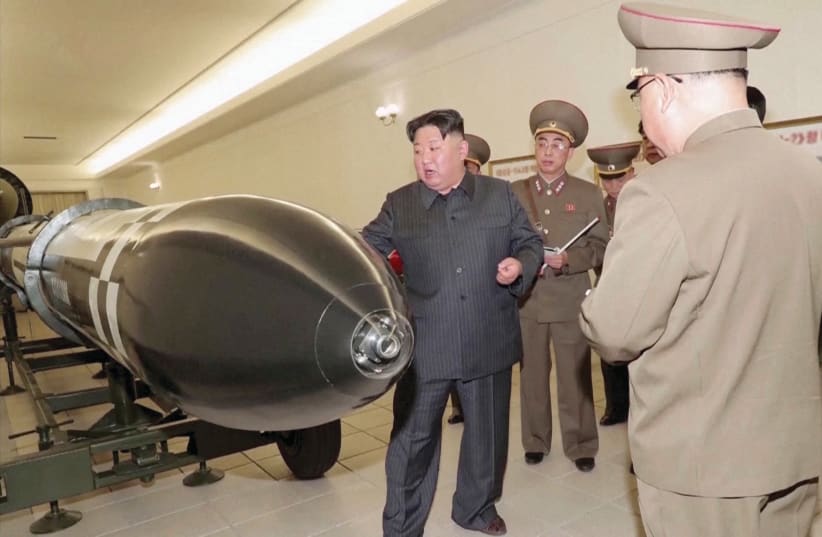
During the war in Gaza, the IDF recovered large quantities of weapons from the Gaza Strip that apparently were produced in North Korea, as reported by the South Korean National Intelligence Service.
Since these weapons were seized, new information has been published revealing the current and historical relationship between North Korea and Hamas, as well as other terrorist organizations, including Hezbollah, Islamic Jihad, Syria, and the Houthis, according to a study by the Stimson Research Institute.
On October 16, Israeli Ambassador to South Korea Akiva Tor expressed concern that Hamas had used North Korean weapons against Israel and vowed to destroy North Korean weapons stocks in the Gaza Strip.
On October 17, a senior official from South Korea’s Joint Chiefs of Staff claimed that “Hamas is believed to be directly or indirectly linked to North Korea militarily in various areas, such as the weapons trade, tactical guidance, and training.”
North Korea’s state Korea Central News Agency (KCNA) called the allegations that it arms Hamas “a groundless and false rumor.” It accused the US of creating the conspiracy to deflect from its own complicity in the Gaza war.
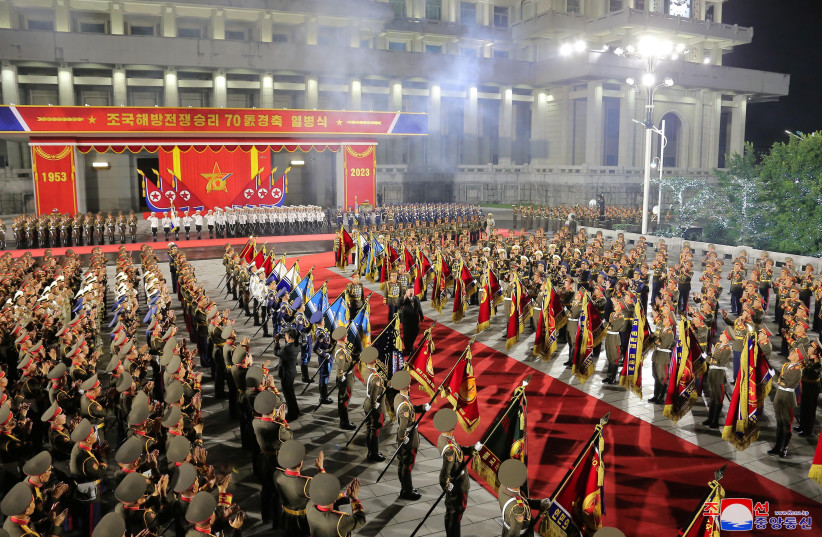
This statement was undermined by the North Korean F-7 rocket-propelled grenades from Hamas’s arsenal that were captured by Israeli forces. In addition, Israeli forces found North Korean Bang-122 artillery shells on the Israel-Gaza border, and a Hamas-aligned terrorist group in Gaza possesses North Korean-made 122-mm multiple rocket launchers.
North Korea's history of partnership with Iran and Syria
North Korea has a long history of partnership with Iran and Syria, detailed in the Stimson report, and as a result, its military technology has reached Iran’s terrorist proxies, Hamas, Hezbollah, and the Houthis.
Since the start of the war, North Korean state media has repeatedly illustrated violence perpetrated by Israel and has whitewashed Hamas. North Korea’s party daily newspaper, Rodong Sinmun, stated that the international community believed “Israel’s constant criminal acts against the Palestinian people” caused the war. The state media has not shown the carnage of the October 7 massacre of Israeli civilians.
North Korea historically has described Israel as an “imperialist satellite state” and recognizes Palestinian sovereignty over the entirety of Israeli territory, except the Golan Heights.
During the 2008-2009 and 2014 Gaza wars, North Korea said Israel was committing crimes against humanity. During the 1970s and 1980s, the Palestinian Liberation Organization (PLO) chairman, Yasser Arafat, received North Korean weapons from Kim Il Sung.
North Korean intelligence officers provided training to Popular Front for the Liberation of Palestine (PFLP) commander George Habash and facilitated the PFLP-Japanese Red Army 1972 terror attack at the Lod Airport in Israel, the report revealed.
Between the end of the Cold War and 2007, these ties weakened. However, they strengthened after the 2014 Operation Protective Edge in Gaza, when Hamas turned to North Korea for military assistance. Hamas reportedly gave North Korea a six-figure payment for rockets and military-use communications equipment. Hamas conducted this transaction through a third-party company in Lebanon.
At the time, North Korea said allegations that it was performing such activities were “utterly useless sophism and sheer fiction let loose by the US.”
Once again, North Korean Bulsae-2 anti-tank guided missiles were found in the inventory of the al-Nasser Salah al-Deen Brigades, a Gaza-based terrorist group and one-time ally of Hamas.
In May 2021, a small quantity of F-7 rockets were found with the Izz ad-Din al-Qassam Brigades, the same Brigade that was part of the attacks on October 7.
This transfer of weaponry from North Korea to Hamas is largely performed through third parties, the Stimson report stated, possibly from North Korea to Iran to Sudan and then to Egypt, where arms are trafficked to Hamas through Hamas’s tunnel network.
In 2009, a North Korean plane smuggling 35 tonnes of rocket launchers, grenades, and missiles was seized in Thailand. US and UN investigators said it is part of a global North Korean illegal arms smuggling network used to finance its nuclear weapons program.
North Korea ties with Hezbollah and the Houthis
In addition to Hamas, North Korea has a history of ties with Hezbollah and the Houthis. In the 1980s, Hezbollah terrorists arrived in North Korea for military training. After 2000, North Korean instructors came to Lebanon to train Hezbollah how to build underground bunkers to store arms, food, and medical facilities. Hezbollah’s tunnel network that stretches to the Israel-Lebanon border was built with North Korean guidance.
North Korea also allegedly transferred improvised Katyusha and Grad rockets to Hezbollah, also transferred through third parties in Syria and Lebanon from Iran. North Korea has aided Iran’s production of several types of rockets, which were then transferred to Hezbollah.
In July 2015, South Korean intelligence officials revealed that the Houthis had fired 20 North Korean-made Scud missiles at Saudi Arabia. The Houthis allegedly captured these scud missiles on the battlefield, as these had been purchased originally by the Yemen Armed Forces from North Korea in 2002.
A year later, Houthi's leadership invited North Korean officials to meet in Damascus, Syria, to discuss technology transfers. These arms transfers have not been officially confirmed.
Go to the full article >>Iran struck Iraqi city because they are unable to respond against Israel, Iraqi FM says
Hussein said there weren't any Mossad agents and explained that four people were killed and six were injured by the Iranian strike and were Iraqi Kurds.
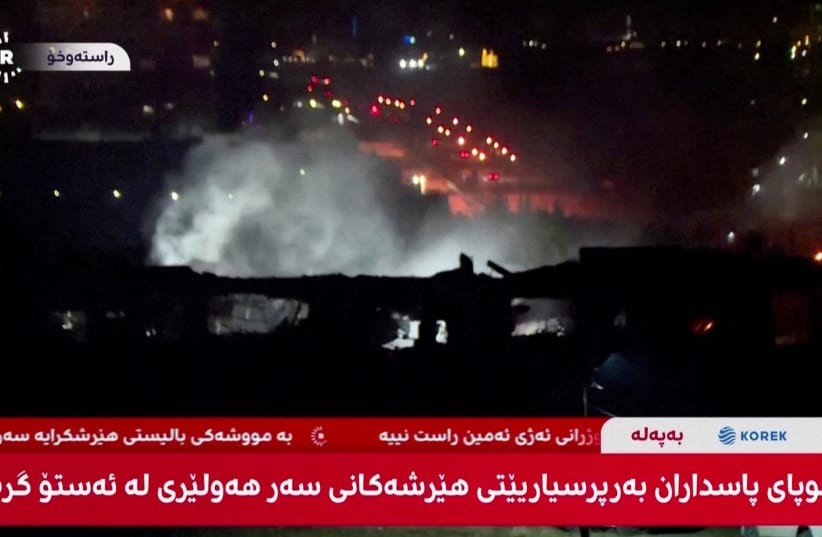
Iraq's Foreign Minister Fouad Hussein told CNN in a Wednesday morning interview that Iran launched missiles at the city of Erbil, because "it is not capable of retaliating against Israel."
The CNN anchor asked Hussein if there were any Mossad agents in Iraq at the time of the attack. Hussein said there weren't any Mossad agents and explained that four people were killed and six were injured by the Iranian strike and were Iraqi Kurds.
"We condemn the attacks," Hussein said on CNN. "They violate international law. We are taking various measures. We are also going to the Security Council in New York."
Iran's Revolutionary Guards said they attacked the "spy headquarters" of Israel in Iraq's semi-autonomous Kurdistan region, state media reported late on Monday, while the elite force said they also struck in Syria against the Islamic State.
"In response to the recent atrocities of the Zionist regime, causing the killing of commanders of the Guards and the Axis of Resistance...one of the main Mossad espionage headquarters in Iraq's Kurdistan region was destroyed with ballistic missiles," the Guards said in a statement.
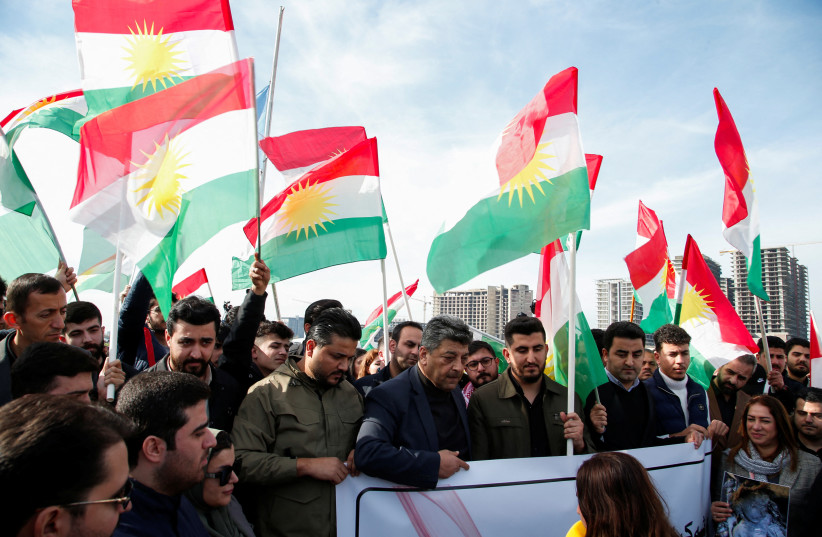
Hussein speaks about Gaza
The CNN anchor and Hussein discuss the Middle Eastern tensions that escalated since the start of the Israel-Hamas War in Gaza.
"The war against the people in Gaza, it creates a huge problem. Not only for the Palestinian people but also for the entire region," Hussein explained. "To stop the war, and to open the door for more humanitarian aid for Gaza. That will help to stop the war in Gaza."
Hussein added: "Putting pressure on Netanyahu's government, will be the first step to help create less tension in the region."
Go to the full article >>Israel strikes Hamas spy operative, destroys rocket launchers that hit Netivot
Bilal Nofal's elimination is expected to significantly impact the organization's capacity to develop and enhance its capabilities.
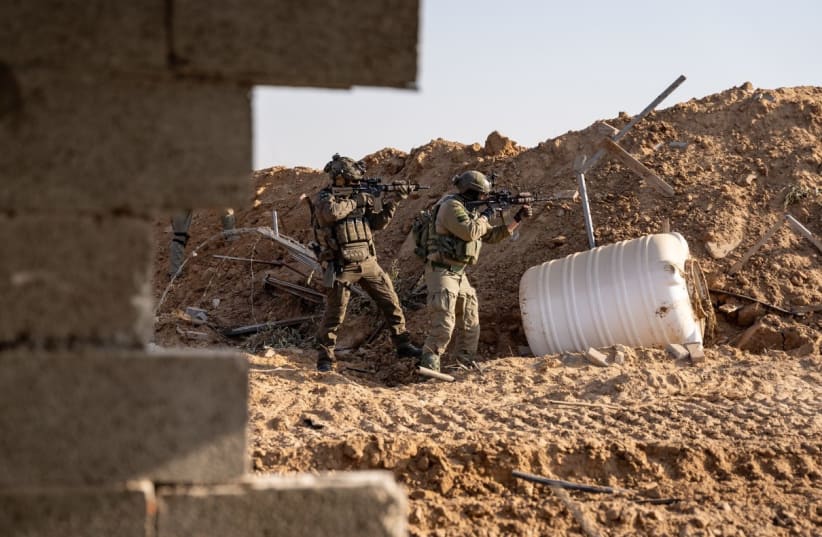
In a joint operation conducted by the IDF and the Israel Security Service (Shin Bet), Bilal Nofal, a key Hamas operative responsible for interrogating individuals suspected of espionage against the terror organization in the southern Gaza Strip, was eliminated by an Israeli Air Force (IAF) aircraft.
Nofal played a crucial role in advancing Hamas's research and development processes, and his elimination is expected to significantly impact the organization's capacity to develop and enhance its capabilities.
The operation comes in the wake of a rocket attack on the city of Netivot on Tuesday when 50 rockets were fired at the southern Israeli city. Following the attack, IDF troops successfully located the launch compound within the Gaza Strip, from which the rockets were fired.
The troops discovered three launchers, each equipped with ten barrels, some of which were loaded with rockets. The compound and the launchers were promptly destroyed by the IDF, thwarting potential future attacks.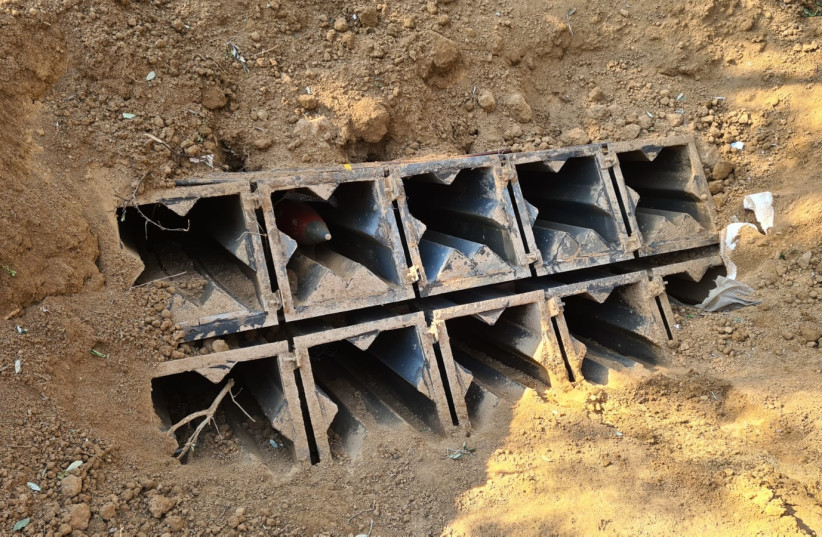
In Khan Yunis, IDF forces identified three terrorists attempting to escape to a building after firing mortar shells at the troops. A helicopter was deployed to strike and eliminate the three terrorists.
Meanwhile, in the outskirts of Sheikh Ijlin in central Gaza, IDF troops identified and targeted two terrorists with the assistance of an IAF aircraft. The operation also led to the discovery of large quantities of weapons in the area.
On Tuesday night, Israeli naval troops carried out strikes on several Hamas terror targets, providing support to IDF ground troops operating in the Gaza Strip. The coordinated efforts reflect Israel's commitment to combating terrorism and ensuring the safety of its citizens.
Israel strikes terror leader in Nablus
Additionally, the head of a terrorist infrastructure in Nablus was killed on Tuesday overnight in a joint operation between the IDF and the Shin Bet, the military revealed on Wednesday.
During the operation in the Balata camp in Nablus, the IDF and the Shin Bet eliminated the head of a terror cell, Amed Abdullah Abu-Shalal, who was planning to carry out a large-scale terror attack, by using an IAF aircraft.
Abdullah was responsible for carrying out numerous attacks over the last year, including the shooting attack in the Jerusalem neighborhood of Sheikh Jarrah, which wounded two Jerusalem residents.
He was also responsible for the bombing attack against IDF soldiers in October, where a soldier was wounded.
Go to the full article >>IDF, Shin Bet kill head of terror cell in Nablus during overnight operation
The IDF and the Shin Bet eliminated the head of a terror cell who was planning to carry out a large-scale terror attack, by using an IAF aircraft.
The head of a terrorist infrastructure in Nablus was killed on Tuesday overnight in a joint operation between the IDF and the Shin Bet, the military revealed on Wednesday.
During the operation in the Balata camp in Nablus, the IDF and the Shin Bet eliminated the head of a terror cell, Amed Abdullah Abu-Shalal, who was planning to carry out a large-scale terror attack, by using an IAF aircraft.
Abdullah was responsible for carrying out numerous attacks over the last year, including the shooting attack in the Jerusalem neighborhood of Sheikh Jarrah, which wounded two Jerusalem residents.
He was also responsible for the bombing attack against IDF soldiers in October, where a soldier was wounded.
Iran and weapons
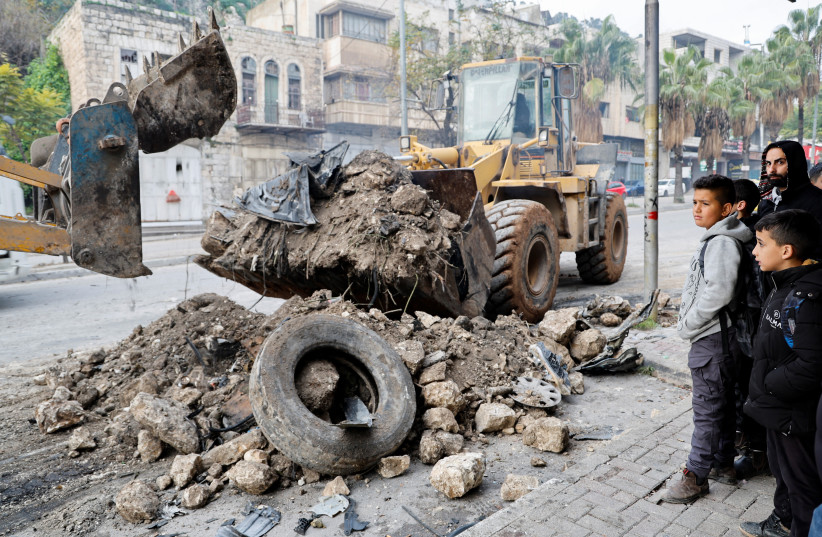
The IDF eliminated Abdullah after receiving an intelligence report from the Shin Bet regarding his intentions.
They eliminated him and found weapons in his vehicle.
The terror cell received funding from Iran with the cooperation of the terrorist headquarters in Gaza.
Go to the full article >>Two IDF soldiers killed in battles in northern Gaza Strip

Two IDF soldiers were killed in action in the northern Gaza Strip, the IDF announced on Wednesday morning.
Maj. (res) Zachariah Pesach Haber, 32 years old, from Jerusalem, an armored fighter in the 87th Battalion, 14th Strike Brigade, and Sergeant Maj. (res) Yair Katz, 34 years old, from Holon, a fighter in the 87th Battalion, 14th Strike Brigade, fell in a battle in the northern Gaza Strip.
In addition, a reserve fighter in the 52nd Battalion, Iron Footprint Formation (401), was seriously injured in a battle in the northern Gaza Strip and a reserve combat medic in the 6261st Brigade, Brigade 261, was seriously injured in the Gaza Envelope.
Go to the full article >>Israel-Hamas War: What you need to know
- Hamas launched a massive attack on October 7, with thousands of terrorists infiltrating from the Gaza border and taking some 240 hostages into Gaza
- Over 1,200 Israelis and foreign nationals were murdered, including over 350 in the Re'im music festival and hundreds of Israeli civilians across Gaza border communities
- 136 hostages remain in Gaza, IDF says